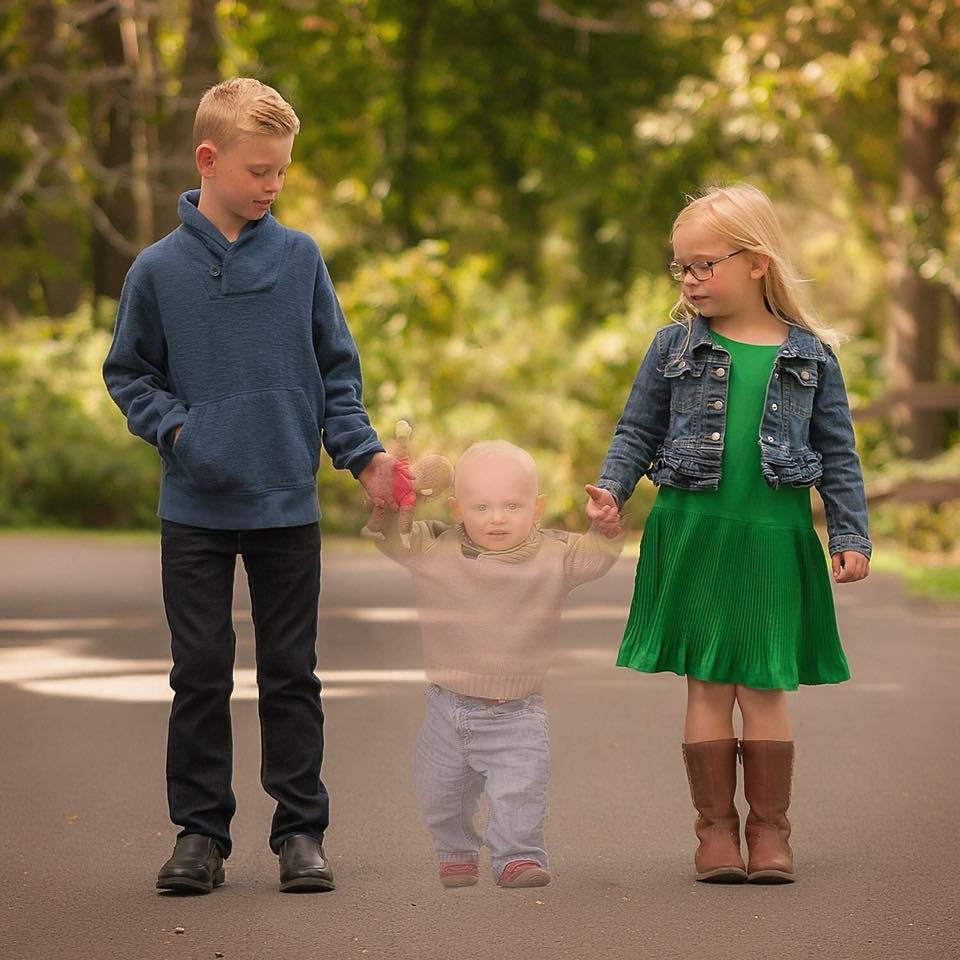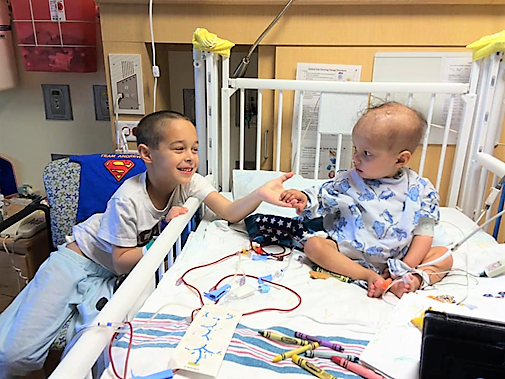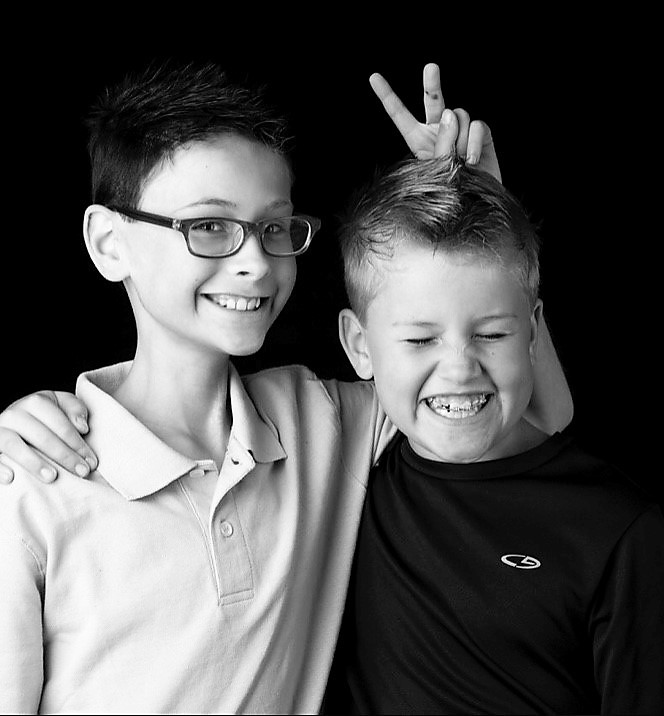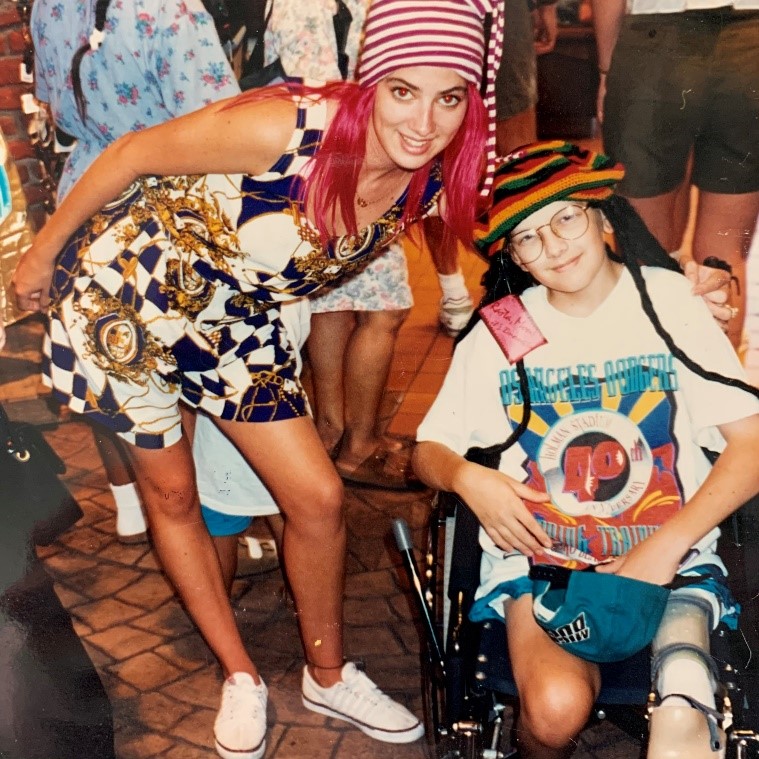To honor cancer siblings and their experiences on National Sibling Day, we partnered with some of our bravest supporters, willing to share their stories in their own words. The following are excerpts from their personal essays along with helpful tips from Dr. Amii Steele, Chief of Pediatric Psychology and Neuropsychology at Levine Children’s Hospital in Charlotte, NC on ways to provide support for those coping with long-term medical conditions.
It goes without saying that the relationship between siblings is unique. When one of the children in a household is diagnosed with a serious illness, everything changes – for everyone. According to Dr. Steele, it’s important to try and balance the needs of all children in the household. “It’s really helpful to provide developmentally appropriate explanations to your other children about what their sick sibling is going through. Providing age-appropriate information is always a good idea so that siblings are not left to draw their own conclusions or try to figure out what is going on.”
“My brother Shane was diagnosed when I was 7. I was confused mostly because I didn’t know what cancer was. When he started radiation, I was scared. Mom and Dad brought me to one of his appointments and the hospital staff let me play dinosaurs with Shane before he went under. I got to see the machine and it reminded me of the Millennium Falcon. Our Child Life specialist helped me take polaroid photos of me making faces to represent different feelings. I had a board on my bedroom door where I could put the picture of how I was feeling for Mom and Dad.” – Chase Metzgar, Shane’s Brother

Many factors influence the sibling experience including one’s age or developmental stage, access to a strong support system, and even the presence of other siblings during the hardship. Memory serves as a significant influencer of a child’s experience. Dr. Steele notes, “Children develop memories at different ages and may not always remember early childhood events. Often, younger siblings only remember key events or things that they have heard stories about or seen photographs of in their early years. I encourage families to document their journey through their child’s illness to help the family work through and process the events later on in life. This can be done through snapping photos or writing down events in a journal.”

“As Andrew got sicker, he slowly started having less and less dancing days. In November 2016, when I was 7, he died. At that age, I was old enough to truly feel grief, and I really missed him. Looking back on that time, I feel like I was naïve to the entirety of what was truly happening. I feel confident that I gave all the love and support I could to Andrew, even donating my bone marrow. I feel upset that I will not experience things with him like watching his first sports game and feel like I’m missing future memories I could have had with Andrew. On a daily basis I think about the things we could be doing together like playing basketball, but I try to appreciate every memory I had with him.” -Wills Levy, Andrew’s Brother
Most children’s hospitals have programs geared toward helping families cope with the strain of a significant illness. “Child Life specialists can assist with helping siblings understand what their ill brother or sister may be going through. They can guide parents on developmentally appropriate ways to share information for the other children in the family. Clinical social workers and Pediatric Psychologists can also help the family navigate all aspects of their child’s illness including linking them with resources for siblings locally,” explains Dr. Steele.
“At the time of his diagnosis, I was eight years old, and as far as I can remember, when I heard it was cancer, I did not really know what that was….I was a little nervous and scared because he had a serious illness and I wanted him to be ok. I do not think at that age I realized that he had a life-threatening disease and that he could die, and that I wouldn’t have a brother. I wish that I was older at the time and could’ve remembered more because it was such an important time in my life. Obviously now that I’m older, I know how serious and dangerous cancer is.” – Sam Aschbrenner, Elijah’s Brother

Elijah and Sam
According to Dr. Steele, “siblings of patients with a serious medical condition commonly feel left out and may really miss receiving attention from their parents and “normal” sibling interactions with the sick child. These siblings may also take on more responsibilities in the family. Siblings also commonly experience stress and worry related to their sibling’s health.”
“The three years after Scott’s diagnosis are blurry to me. Most of his doctors were out of state so Cason and I didn’t see him or our parents much – at least that’s what my memory says. We caught rides with friends or drove ourselves to our events. I got ready for the Prom by myself and locked the door behind me. If my parents and Scott were in town so we could be together for a few days, a mere sniffle could reroute us to our grandparents for the week because we couldn’t risk someone being sick…As much love as we had for one another, the idea of routine and stability was gone.” -Lizz Carter, Scott’s Sister

Liz and Scott
“Three years later, and in the middle of my senior year of high school, Scott died. I was heartbroken that our family would be fractured forever. I was angry that we had all sacrificed and lost so much time together and that it hadn’t saved him. I felt guilty for feeling angry because it wasn’t like I really wanted them at my events instead of trying to save Scott’s life. But Scott’s sickness and our family’s circumstances didn’t change my emotional needs as teenager. ” – Lizz Carter, Scott’s Sister
The challenge of supporting a sick child while also meeting the needs of other children can be incredibly taxing on families. However it is critically important for the sibling not struggling with a serious illness to have as many “normal” experiences as possible. “Siblings should be included in the care of the sick child and at the same time allow the sibling to have normal, developmentally appropriate opportunities to just be a kid or teen. I encourage families to plan special 1 on 1 time with the siblings and the parents when feasible. Ensure that the sibling has age-appropriate knowledge of what is going on with their ill sibling. If possible, allow every opportunity for the sibling to receive a similar amount of attention as the sick child and be included in any special events or outings for their sibling,” explains Dr. Steele.
A huge thank you goes out to our fearless siblings for sharing their memories and to Dr. Amii Steele for sharing her wisdom. We hope this serves as a beacon of hope for others navigating long-term medical conditions. As a reminder, this blog contains excerpts from sibling stories shared on social media. To read their full essays, please visit our cc-TDI Facebook page.


